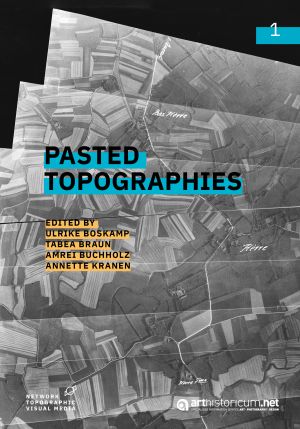Zitationsvorschlag
Lizenz (Kapitel)

Dieses Werk steht unter der Lizenz Creative Commons Namensnennung - Keine Bearbeitungen 4.0 International.
Veröffentlicht
On Cutting Forests and Avoiding Pasting
Heinrich Cotta’s Forest Maps
The paper examines historical forest maps from the 18th and 19th centuries. The focus is on the question of how the map’s notation systems and paper techniques transformed forest environments. Thus, the analysis highlights parallels between the practices of cutting, pasting, and subdividing paper and the way how forest parcels were organized in the forest. In fact, monocultures were a result of the cartographic techniques that were standardized in European forestry at the beginning of the 19th century. Consequently, it is worthwhile to analyze the mapmaking strategies of sustainable forestry in the context of widespread land-use conflicts in the early 19th century. Ultimately, the paper traces the epistemic violence enacted against subsistence practices in the forest that disrupted the goal of sustainable timber yields and homogeneous forest parcels on the map.







